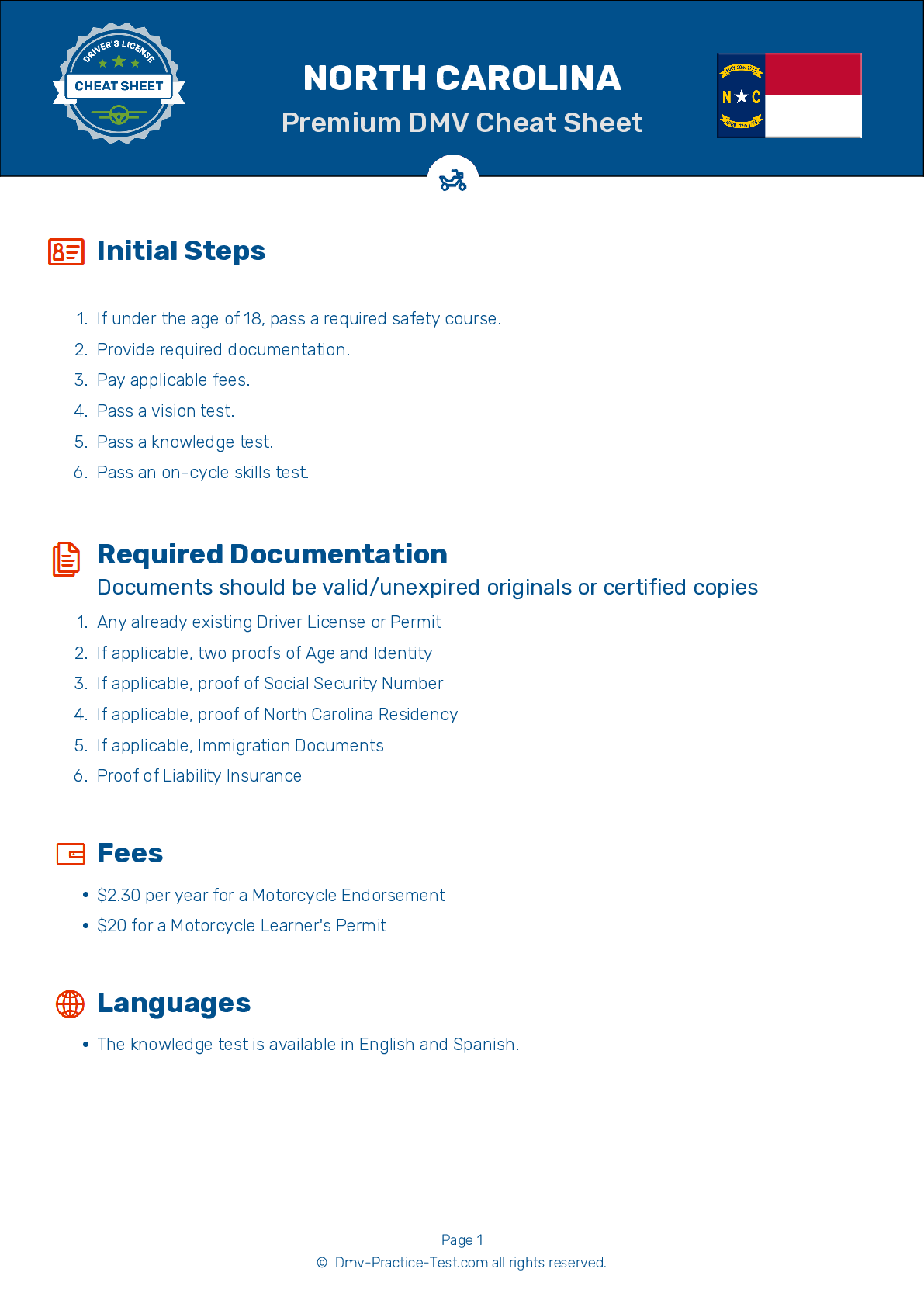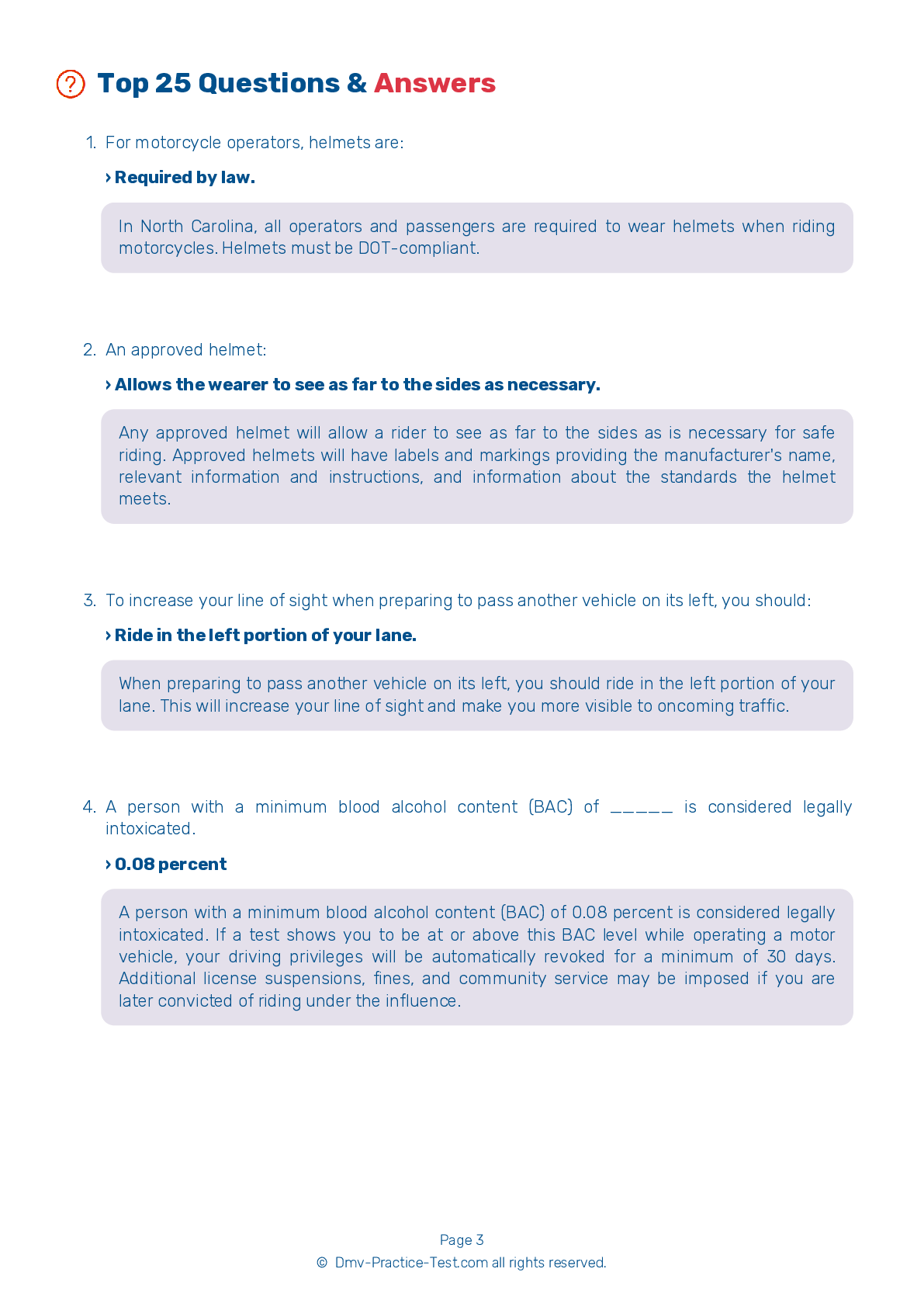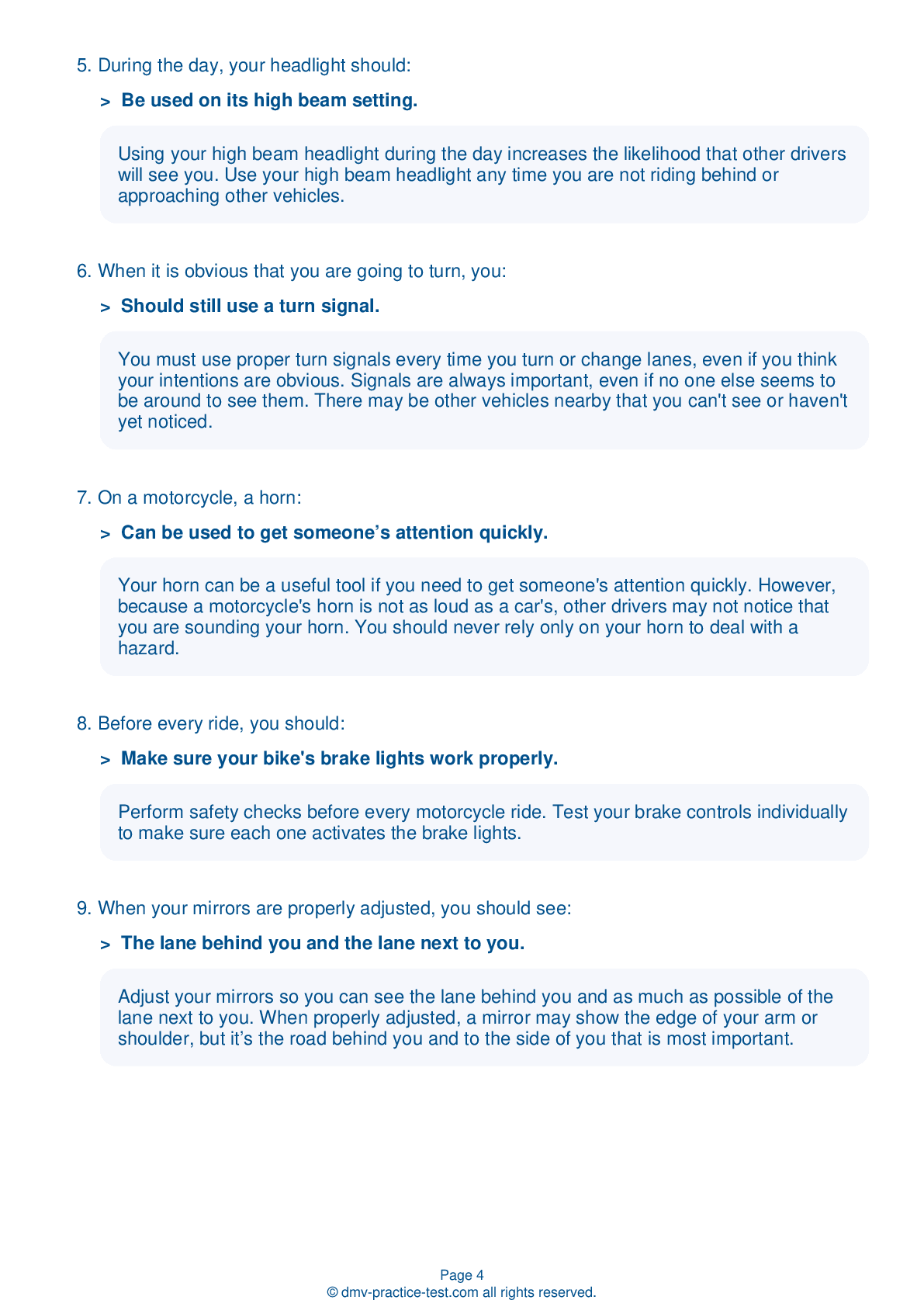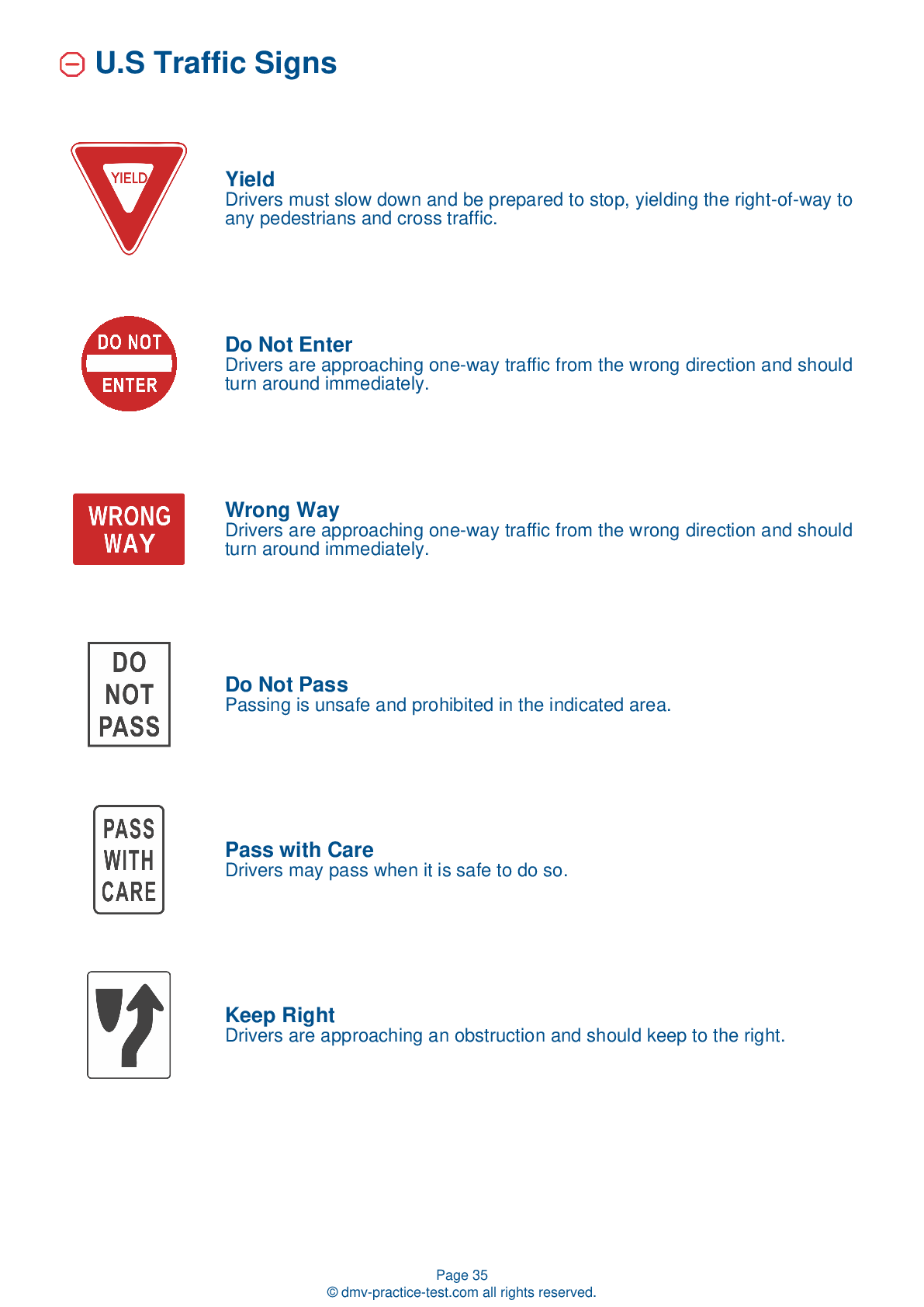Motorcycle Test | License NC 2026 | FREE Online Practice! #7 Page 5 of 5
Take this FREE motorcycle test (license in NC 2026) to check your knowledge of the road rules. To improve your results, download a motorcycle handbook online, study theory, and practice for free on our website. Still worried about how to get a motorcycle license in North Carolina in 2026? Check our website for more sample tests, train as much as possible, and boost your grades!
21 . Motorcycles:
Motorcycles have blind spots, just like any other vehicle. Always turn your head to check your blind spot before changing lanes. Head checks should be a regular part of your scanning routine.
22 . If it is warm outside, should you wear a leather jacket while riding?
In warm weather, a riding jacket will help prevent dehydration in addition to serving the basic protective function that it provides at all times. Many jackets are designed to protect riders against overheating, even in warm weather.
23 . It is recommended that you take a curve by beginning on the outside of the curve, moving to the inside of the curve, and exiting on the outside of the curve. An alternate option is to:
If there is no traffic present, it is recommended that riders take a curve by beginning on the outside of the curve, moving to the inside of the curve, and exiting on the outside of the curve. An alternate option is to start the curve in the center of the lane and remain in the center throughout the curve. Be aware of changing road and traffic conditions and adjust as necessary.
24 . When traveling in heavy traffic, maintain a minimum ______ following distance.
An expanded cushion of space is needed if your motorcycle will take longer than normal to stop. If the pavement is slippery, if you cannot see through the vehicle ahead of you, or if traffic is heavy and another driver may try to squeeze in front of you, open up to a minimum three-second following distance.
25 . Most crashes happen:
Most motorcycle crashes happen on trips that are shorter than five miles in length at speeds slower than 30 mph.
See the exact questions that will be on the 2026 North Carolina DMV exam.
99.2% of people who use the cheat sheet pass the FIRST TIME
Jeneen was tired of paying $5/gallon. She got herself a scooter that required the motorcycle license. She studyed the motorcycle test cheat sheet and passed her test the next day!
Christopher tells us how he knew nothing prior to obtaining the motorcycle study guide, and he only got one question wrong because he clicked on the wrong answer by mistake.



